Ancients & Ambrosia: Read Appalachia
An Interview with Kendra Winchester, founder of Read Appalachia
Me and the baby hadn’t seen a single person, hiking a long trail that circled the mountain peak this Sunday morning. I picked the trail to allow for more mileage on my post-partum tendons and joints without having to do any serious elevation.
Most of the mountainside, especially the slopes below me, but often reaching above, had signs of the fire from two years ago, and I smelled, in that velvety green new growth, something I’d never smelled before—like the smell of laundry detergent in your septic field, but real and perfect. I walked and watched the thick shafts of sun come through the canopy and spotted a pale white tree far off the trail through the blackened trunks (I shivered and kept walking).
I thought about this interview while walking—specifically the mention of jello salads, because I’m a hungry bitch. But also the many Appalachian voices I’ve read and the work Kendra is doing to highlight more. I am overjoyed Kendra agreed to this interview. I am a huge fan of the work Kendra is doing to bring more discussion and visibility to Appalachian voices. When I think about the voices of Appalachia, in writing and poetry and storytelling, I think of voices who have a touch of the ancients, no matter the genre.
The Appalachians are older than Saturn’s rings. They are older than the dinosaurs. They are the Atlas Mountains in North Africa and they are the mountains of Scotland. There is a quality that infects all your work when you grow up with your roots some of the oldest in the universe. The oldest gods are dark and serious, but equally as petty and humorous. Sometimes vengeful. But never careless. It’s also always reinventing itself—roots still growing, regrowth after fire, refusing to fold.
It’s those ancient voices that whispered before Saturn’s rings that worm its way into our work and daily life. You might imagine in some grand romantic tradition, but it shows up just as much in the everyday. Even down to jello salads. Kendra’s interview made me remember my family’s summer jello salad recipe1. It’s made of sour cream and marshmallows and canned fruit and coconut and certainly not what Food Culture would call “of the gods.” But we are people who live alongside the oldest ones. We called it Ambrosia.
Lemon: First off, can you introduce yourself, Read Appalachia, and what led you to develop this podcast/project?
Kendra: I’m Kendra Winchester, and I work in bookish media. I read, write, and podcast about all things books! I’m currently a Contributing Editor for Book Riot, where I write about Disability Literature, Appalachian Literature, and audiobooks. I also co-host their mystery and thrillers podcast, Read or Dead. I’m also a Contributor for AudioFile Magazine’s podcast, Behind the Mic.
In 2016, I co-founded Reading Women, a podcast with Lit Hub Radio that featured books by or about women. On the show, I interviewed authors like Lauren Groff, Samantha Irby, Min Jin Lee, Leigh Bardugo, Tressie McMillan Cottom, and Carolina De Robertis. On the weeks we didn’t have interviews, the other co-hosts and I talked about books from authors from around the world.
During this time, I moved away from Appalachia, and I found myself missing home. I’d lay awake homesick for the mountains. One night, I was scrolling through Instagram looking for an Appalachian bookstagram. But I couldn’t find one. So I rolled up my sleeves and decided to do it myself. I popped into Canva, made a logo, registered the username across all platforms, and Read Appalachia was born.
After Reading Women ended at the end of 2021, I took some time off. But I knew I really wanted Read Appalachia to be a podcast. I launched the first episode at the beginning of this year, and it’s been such a wonderful experience sharing authors’ stories.
Lemon: I found your work in an exactly similar way—homesick and looking for an Appalachian bookstagram. So thank you!! What are your ultimate goals or hopes for Read Appalachia?
Kendra: In South to America, author Imani Perry shares how she went to speak to a large audience. When she mentioned that she was from Alabama, the audience broke out into awkward giggling. This is how so many people view her home state, as a joke. She is an established specialist in her field and her audience still laughed when they heard where she came from.
I’ve thought about Perry’s anecdote a lot. When I was still working on Reading Women, people often assumed I lived in New York City. When I told them where I was from Appalachian Ohio but now lived in the South Carolina upstate, I received a lot of awkward silent laughter. “How did you end up there?” and “Why do you stay?” they’d ask.
With Read Appalachia, I want to celebrate Appalachian Literature and writing. I want to shine a spotlight on the authors, small presses, and tireless editors that pour their hearts into their work, representing our region, both the good and the bad. I’m not here to romanticize Appalachia and ignore its problems. Instead, I want to support Appalachian people as they tell their own stories. I hope the Read Appalachia will help push readers from outside the region to rethink their assumption about Appalachia, and other parts of “regional” America that they write off as “flyover country.”
Lemon: Can you introduce the Corgis to everyone?
Dylan is a 7-year-old Pembroke Welsh Corgi. He’s a Southern gentleman who is very polite and respectful of people’s personal space. He has these dainty feet that he hates getting wet when it rains. But he still loves playing in the ocean or in creeks. Pembrokes are ranked as the 11th smartest breed in the US, and he’s proven that time and time again. He is so smart and easy to train, even with his independent streak.
Gwenllian is an almost two-year-old Cardigan Welsh Corgi. Cardigans are the older of the two breeds of Corgis, and their biggest visible difference is that they don’t have their tails docked. They also come in a wider variety of colors, so people often ask me very confused questions like, “Is that a Corgi?”, “Do Corgis even come in that color?”, and “What’s she mixed with?” Gwen, bless, isn’t the brightest crayon in the box, but she’s very sweet and cuddly. Dylan is more than happy to outsource cuddles to Gwen so he can toast his hammies in the sun without interruption.
Lemon: I love them! How do you balance Read Appalachia with your day job, personal life, reading and the Corgis?
Kendra: I’m a chronically ill disabled person who’s always short of energy. When you have only so much energy in the day, you become a pro at managing your time. That being said, it’s a lot. I’m often stuck on the couch for days at a time, so I’m constantly breaking down deadlines into different tasks, planning backward, and generally feeling overwhelmed by it all.
But I’m so proud that I’ve taken some huge steps towards creating a fuller, richer life for myself that includes more than just work. This year, every time I want to say no to doing something with friends or family, I ask myself why I want to say no. Do I feel I should be working instead? Or do I have a different reason why I don’t want to do said activity? 2023 has pushed me to do more fun things and prioritize activities that bring me joy and spending time with my favorite people.
Lemon: This might be a little tough, but one thing I've noticed in the larger literary world is a sense of "who cares" about Appalachian literary tradition. Why do you think readers should care?
Kendra: That’s the money question right there: “Why should they care?”
Fundamentally, I think our stories matter. And there’s no one way to be Appalachian. There’s no singular story that captures our region.
By standing up and telling our own stories, we’re asking people to bear witness to our existence, even when it makes them uncomfortable. We’re asking people outside the region to examine their own harmful assumptions and prejudices about mountain people.
Telling our stories also helps Appalachian readers to find themselves in books and know they are not alone. The first time I read an Appalachian story that I connected with, I cried over its pages. It made me feel seen in a way I didn’t know I needed. That’s the power of literature.
Lemon: What are some of your favorite Appalachian books?
Kendra: This is SUCH a hard question! I know all of us bookish types say that but—my stars! This is why I have almost 1,500 books in my house. But here are some favorites that might have flown under the radar.
A member of the Affrilachian Poets, Bernard Clay is an incredible writer just out there doing his thing, writing great poems between tasks on his farm in Eastern Kentucky. English Lit is his first poetry collection, and it’s stunning.
Lemon: Please everyone listen to her poetry episode, featuring an interview with Clay.
The Evening Hour by Carter Sickels
I really enjoyed his latest novel, The Prettiest Star, but I adored Sickels’ debut, The Evening Hour. It’s set in West Virginia and centers around Cole, a man working in a care facility. He steals painkillers from his patients, and buys others from folks around town. There’s so much depth and complexity to Cole as a character. And the novel possesses such an intense sense of place.
Even As We Breathe by Annette Saunooke Clapsaddle
Clapsaddle crafted such a beautiful historical novel set during WWII that is centered around Cowney, a Cherokee young man who gets a job at the historic Grove Park Inn in Asheville, North Carolina. The US government is housing Axis diplomats and their families at the inn. When a daughter of a Japanese diplomat goes missing, the US soldiers racially profile Cowney and bring him in for questioning.
Lemon: How do you envision the growth and development of Appalachian literary arts among publishing and with readers?
Kendra: Overall, I would love for folks to retire this idea of “regional literature.” It’s a patronizing term that gets thrown around a lot when the author is from or is writing a book set somewhere other than an urban location on the coast. All literature is regional literature in some way, and great books can be set anywhere.
Lemon: When I was growing up, we never really referred to ourselves as Appalachian-—maybe it was just me? I learned to do that once I left and kept needing to explain to people who weren't from there. What was the point in your life where you understood you were Appalachian and how did that affect your relationship with the region?
Kendra: Like you, I didn’t grow up thinking of myself as Appalachian. But in grad school, I began researching my dad’s family history and came across the map created by the Appalachian Regional Commision. Roughly a third of Ohio’s counties were in Appalachia. The realization felt like I was hit by a mack truck—my grandparents were Appalachian. I was Applachian.
From there I began researching the history of the region. For Reading Women, I interviewed Appalachian authors, like Elizabeth Catte, Meredith McCarroll, Annette Saunooke Clapsaddle, Leah Hampton, and Crystal Wilkinson. Each author shared their perspective on the region. I’m so grateful for these Appalachian women for taking the time to have these discussions and share their work with me.
Lemon: What are some of your favorite Appalachian foods?
Kendra: My mom makes a delightful orange Jello-O salad. I loved pickled vegetables of all kinds. One of my most beloved memories of my grandparents is of them in the summer, slicing up tomatoes from their garden, sprinkling them with salt, and eating them while sitting on their back porch.
I recently read Appalachia on the Table, a wonderful book about how food and food culture is perceived in Appalachia. Erica Locklear Abrams writes a lot about how we shouldn’t romanticize Appalachian food by only highlighting heritage ingredients. We should also talk about how processed food has also been part of Appaalchian culture. I can’t help but agree. After all, everyone’s family has their own Jell-O salad recipe.
Lemon: How can readers support Read Appalachia?
Kendra: Thank you for asking! Readers can support Read Appalachia by buying our merch, supporting Read Appalachia on Ko-fi, or just share the podcast with their friends. Read Appalachia is also on Twitter, Instagram, and TikTok.
yes, we have a winter one and it’s Strawberry Pretzel Salad—we also had a “something different” one and it’s the orange jello and carrots one, but I don’t know if it had a name





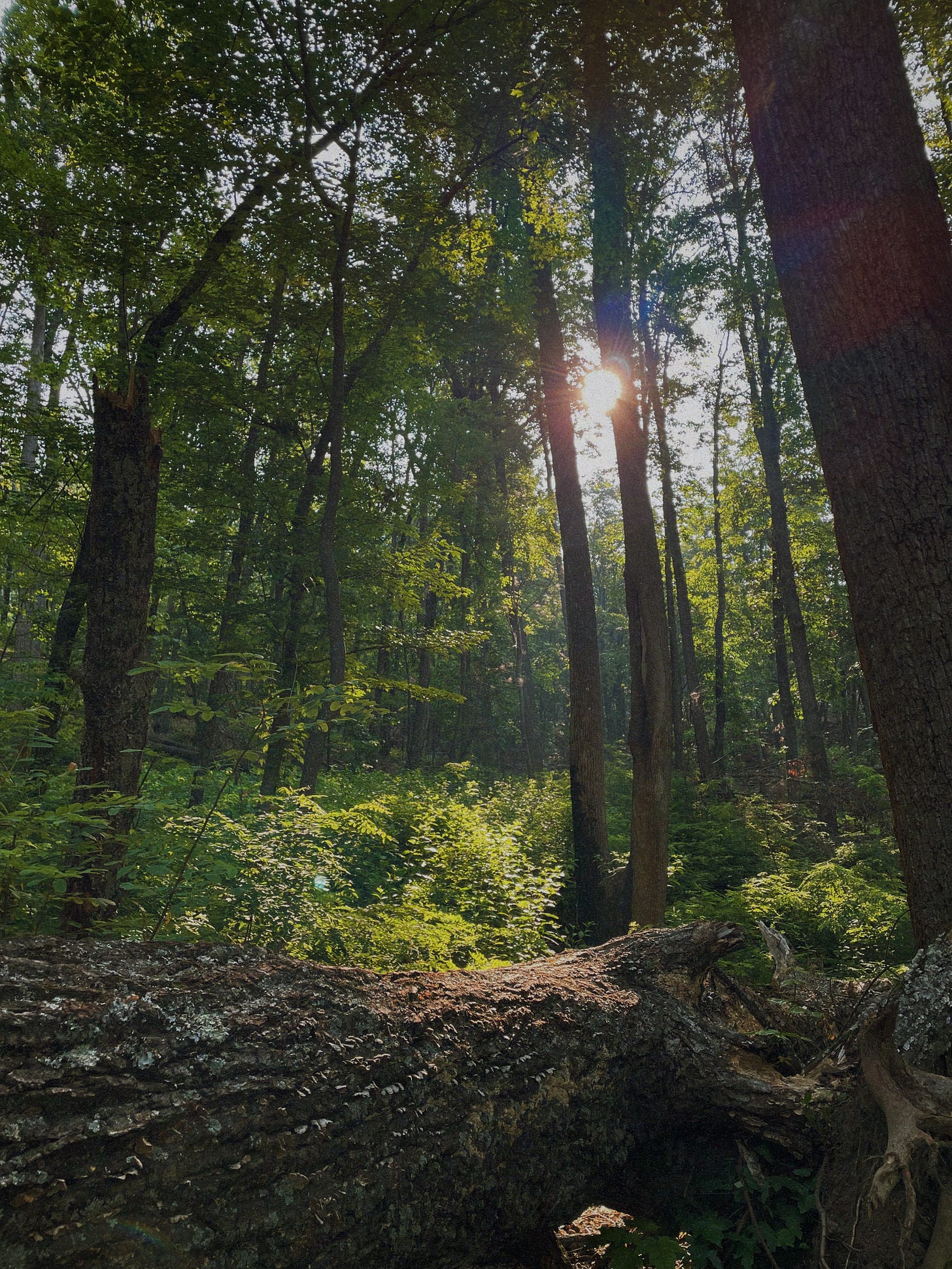
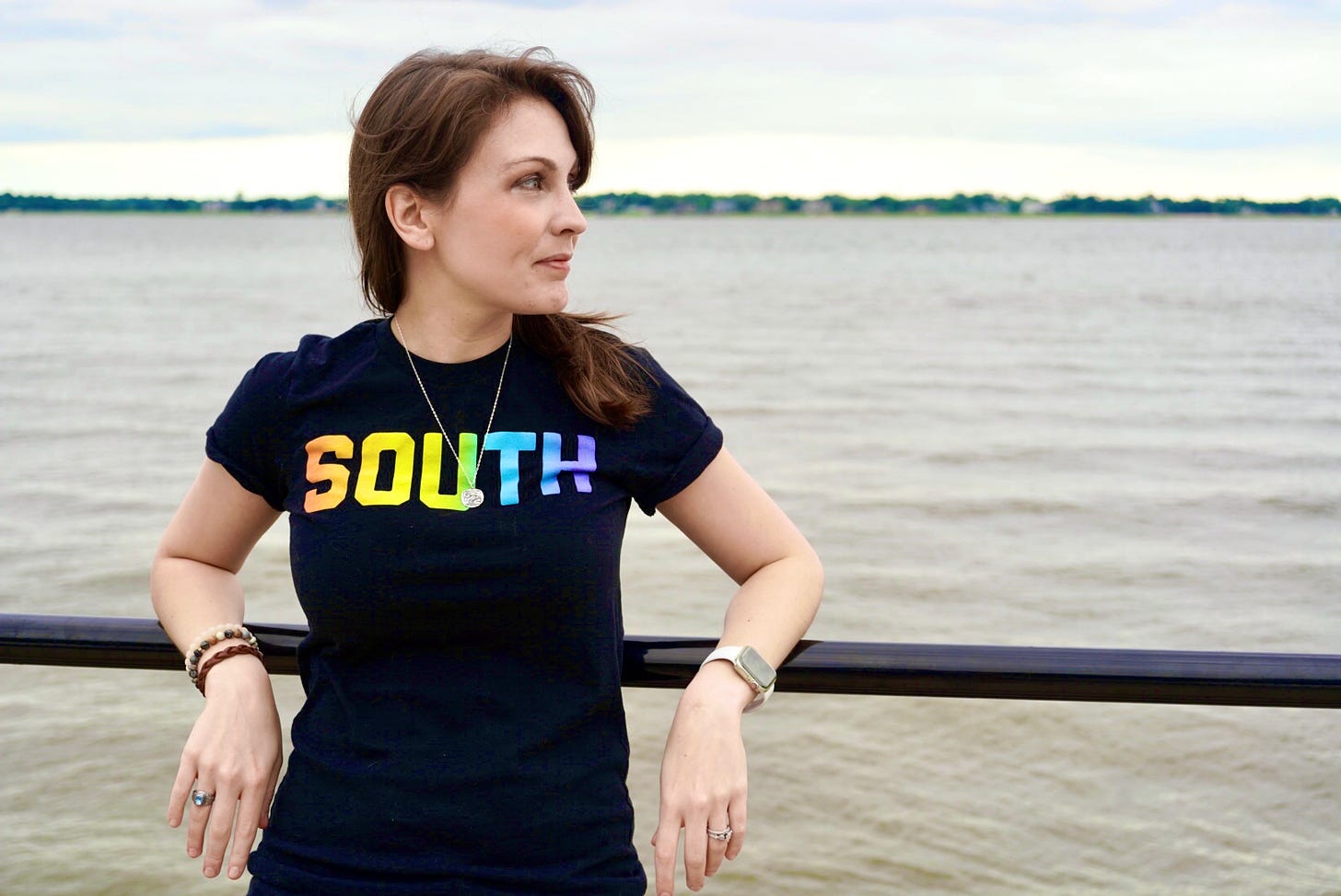
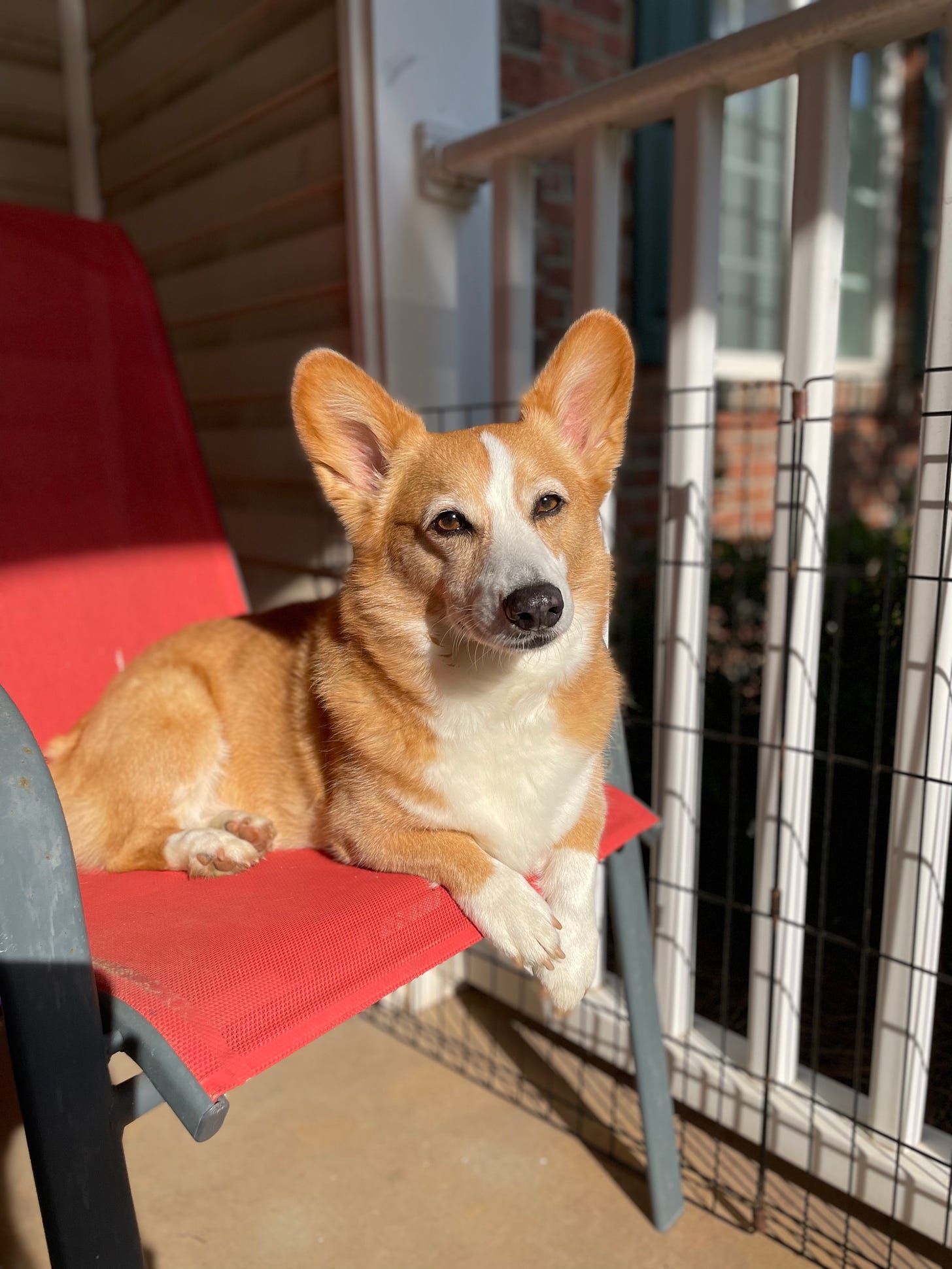
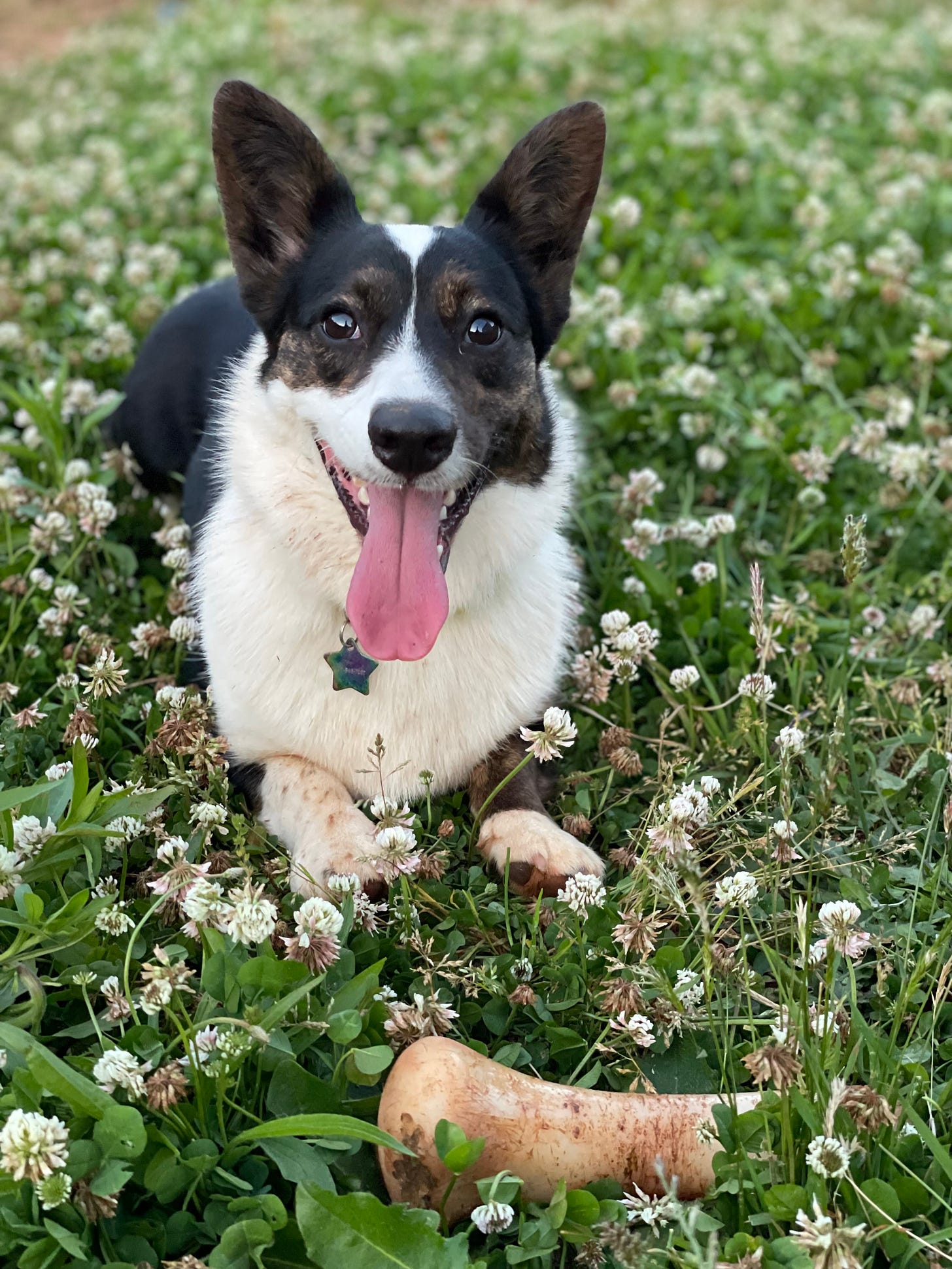
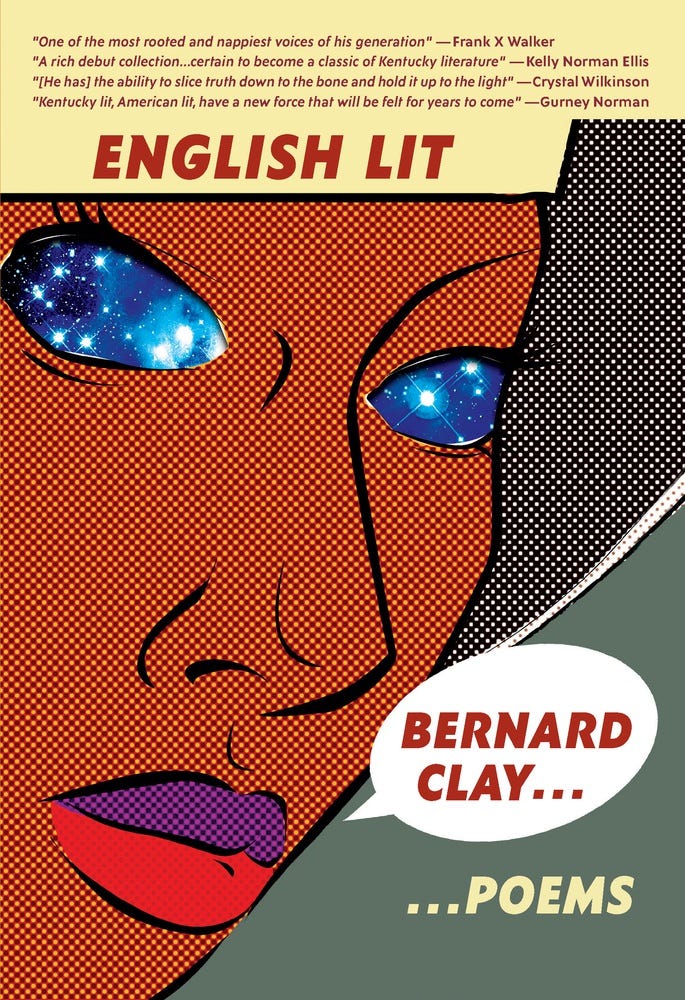

Thank you for such lovely questions! ♥️✨